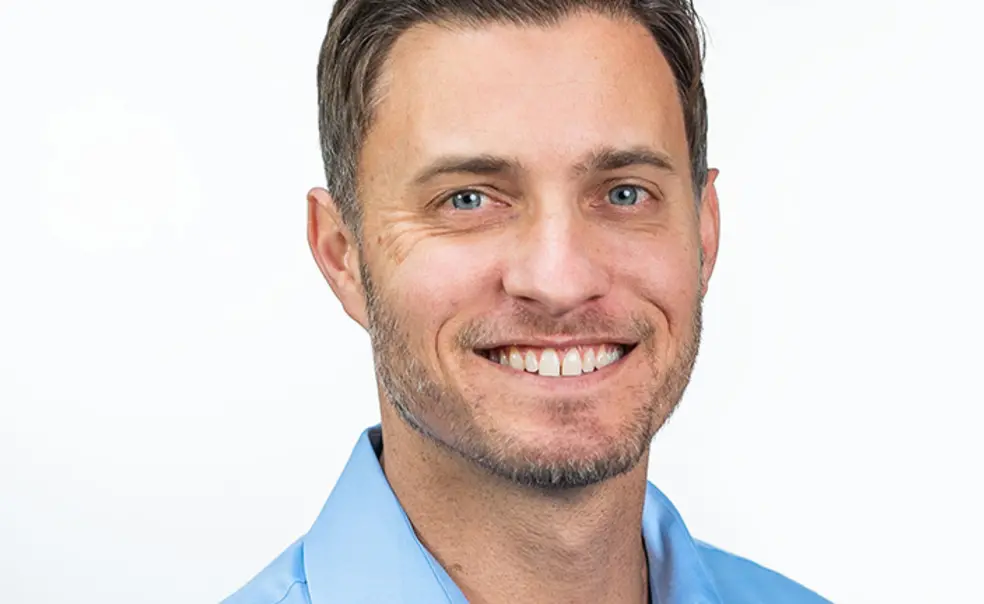Jan. 18: Mark Herrema ’04 Explains Carbon Capture Technology
Mark Herrema ’04 is co-founder and CEO of Newlight Technologies, which opened in 2020 with a plan to replace plastic with biodegradable materials that actually pull greenhouse gases out of the atmosphere. Herrema spoke recently with The Wall Street Journal about the path companies like his are taking to bring these products into the mainstream marketplace, and in an interview with PAW, he further explained the science behind capturing carbon.
How does carbon capture technology work?
There is a lot of carbon capture technology out there. What we do is biological carbon capture. There are microorganisms in nature that eat greenhouse gas — either carbon dioxide or methane — as their food source. We isolated some of those microorganisms many years ago and found microorganisms that exist in nature, including in the ocean, that eat either carbon dioxide or methane, and they grow.
One of the things that happens when they grow is they fill their cells with a muscle-like material that we call air carbon (technical name is a molecule called PhB). What’s interesting about air carbon is that when you isolate and purify it, it becomes meltable. But because the material is made throughout nature, nature sees it as a food source and is able to break it down like a banana peel or tree leaf.
You now have a meltable, moldable material that can replace plastic, but it’s fully degradable. You’ve now captured carbon that would otherwise be in the environment and turned it into solid form. We can do the same thing now.
We found these microorganisms, replicated ocean conditions on land, and we feed the microorganisms in a saltwater solution, air, and greenhouse gas. They eat that, grow, and fill themselves with this air carbon material. We isolate and purify that and turn it into various shapes, parts, and pieces, and now we are using that material to create products, including [for the] food, fashion, and automotive industries.
It replaces plastic with a naturally recurring material. And it creates consumer products with a zero-carbon footprint or a net-negative carbon footprint. We are bringing carbon capture into consumer products.
How did you get into this industry?
The company started between my junior and senior years at Princeton. I had become interested in market-driven solutions at Princeton. My senior thesis was on looking for a market-driven solution to address world hunger. While doing research I came across carbon emissions. I thought, what if we could use greenhouse gas as a resource? Then we have something that could scale in a different way.
What can you turn this material into?
It can be used for utensils, straws, bowls, plates. Shake Shack, Disney, and Ben & Jerry’s use these products. On the fashion side, we launched products with H&M and announced a partnership with Nike. On the automotive side, we have a partnership with Sumitomo tires.
— Interview conducted and condensed by Nicholas DeVito.
A new book by New York Times reporter Philip Taubman, In the Nation’s Service: The Life and Times of George P. Shultz [’42], views the Reagan administration through Shultz’s eyes and finds it “swamped and nearly paralyzed by disorganization and infighting.” — The Washington Post
Among her financial tips for 2023, Christine Whelan ’99, professor of human ecology at the University of Wisconsin-Madison, suggested structuring a budget around your family’s values, paying down debt, and resisting “buy now, pay later” offers. — Yahoo!
Douglas Elmendorf ’83, dean of Harvard University’s John F. Kennedy School of Government, is being criticized for not offering a fellowship to the longtime director of Human Rights Watch, Kenneth Roth, who says it’s because the organization criticized Israel. American Civil Liberties Union executive director Anthony Romero ’87 weighed in with a statement condemning the decision. — The Chronicle of Higher Education
Filmmaker Azza Cohen ’16 made a documentary about her 82-year-old grandmother learning how to swim. — The New Yorker
Previewing his new book, Tomorrowmind, psychologist Martin Seligman ’64 said expecting worst-case scenarios is a recipe for PTSD, and the remedy is to reframe thinking in a way that builds resilience. — Time
Retired Gen. David Petraeus *85 *87 explained why Ukraine is doing well and Russia so poorly in the war. — The Oxford Student
Columnist James Zogby, president of the Arab American Institute, outlined Ralph Nader ’55’s plan for Lebanon: “…a path that should be seriously discussed to spur a far-reaching debate about what it will take to save the country.” — The National
Fox News host Pete Hegseth ’03 said John Witherspoon “is recognized as a hero” and criticized on-campus conversations about taking down the statue of him because he owned slaves. “We’re all imperfect in one way or another,” Hegseth said. — Fox News
“We’re actually more than friends. He’s my very dear brother. That is, he is like a member of the family, and sometimes a member of the family can be wrong about things and you still love them.”
— Cornel West *80, speaking about and with Princeton professor Robert George about how the two have maintained a close friendship despite their vast political differences, and despite the nation’s climate of polarization. — Fox News
Conservatives criticize higher education, but they laud Purdue University under the leadership of Mitch Daniels ’71, who stepped down from the school’s presidency last year. — The Chronicle of Higher Education
Heather M. Butts ’94, an assistant professor of health policy and management at Columbia, said not only is it safe to get the flu and COVID vaccines at the same time, it is advisable. — Amsterdam News
Tom Doran ’87 is the new president of Highmark Health Plan, the fourth-largest Blue Cross Blue Shield affiliate. — Highmark
After Buffalo Bills player Damar Hamlin collapsed, Dartmouth professor Randall Balmer *85 discussed Americans’ fascination with the violence of football. — LA Times
Get PAW’s Alumni in the News newsletter in your inbox at paw.princeton.edu/email.










No responses yet